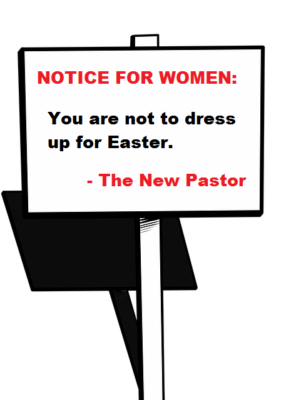Original post is here. This is continued from Three Steps Part 4: Feminism and Fellowship.
The second half of the 1970s was a time of growing tension in American society, and in my family. We had had the first real economic crisis since the Great Depression, and people were jumpy. Instead of blaming the changing economy, they blamed the scapegoat du jour, feminism. Feminism took the hit for two trends that had been actually going on for most of the 20th Century. One of them was the return of the largest number of women to the workforce since WWII. While it was true that feminism encouraged women who wished to work to pursue their dreams, the majority were motivated by the economy. For every woman who went to work to to fulfill her potential there were 20 who did it to put food on the table for their families.
The more serious issue in the opinion of our neighbors that feminism was blamed for was the rising divorce rates. I can remember riding the bus to school and all the other kids were talking about how their parents were getting divorced or had gotten divorced. They thought we had the only parents in the neighborhood who were still together. I couldn’t bring myself to tell them that our parents were actually already on their second marriage. They had divorced a decade earlier to beat the rush.
The real culprit was a bad model for marriage. Marriages made in the early 20th Century were encouraged to follow an occupational model where marriage was viewed as a job with fixed rules that could not be deviated from. This meant that nothing could be changed if the marriage wasn’t working by those fixed rules. Worse, it encouraged cheating on a spouse by equating it with what was considered the relatively minor offense of cheating on your employer. Consequently there was an epidemic of unhappy marriages, and the divorce rate had climbing steadily since the late 1950s before starting to climb steeply in the late 1960s. The saying, “Marry in haste, repent at leisure” was painfully true for far too many people.
Feminists pushed a partnership model of marriage, where each spouse was an equal partner able to renegotiate when things weren’t working out so as to prevent getting a divorce. It also equated cheating on a spouse with the more socially serious offense of cheating on a partner instead of cheating your boss. Starting in the late 1960s more marriages have followed this model, and consequently the divorce rates would decline dramatically in the years to come. But in the late 1970s things had never looked scarier to people who valued traditional marriage.
I don’t know which of these pressures was getting under my adoptive mother’s skin and turning her into a vindictive jerk, but something was. She didn’t like it when the sour economy which forced her to go back to work, even though she had worked until we moved to Birmingham only a few years before. She didn’t like it that her second marriage had deteriorated even further, judging from the fact that my adoptive father’s coworkers had pity-dumped a multi-year stash of Playboy back issues on him that he had to hide in the basement. She didn’t like it that her hair had started to turn grey, which she was camouflaging with the new “frosted highlights” treatment. She didn’t like it that I was getting positive attention from being in the gifted program; she let everyone know that even if I was smart I would never amount to anything. She didn’t like it that I was starting to ask questions. She took all her myriad dislikes for everything else and focused them on one target — me.
Honestly, I found life bewildering at that point. I was old enough that my reason was starting to kick into gear. I could figure out logic puzzles, but the real world didn’t make much sense. And I dearly wanted it to make sense in such a way where everybody agreed with everybody else and people really loved me. But in the real world the arguments only increased and my mother’s abuse only grew more overt.
Well gosh darn it, I was going to try anyway. Both my gifted class and my church taught that reason could and should be used to make the world better, so I was going to use it. But it was hard to reconcile reason and misogyny, especially the virulent misogyny of my adoptive mother, who made Southern men of the 1970s look like die-hard feminists in comparison.
For instance, there was the whole question of women’s role in society. My adoptive mother staunchly defended the natural inferiority of women, and more importantly the natural superiority of white women who believed in the natural inferiority of women over those women of any race who did not believe any such thing. This gave her a moderately high position in the hierarchy from which to look down upon others without having the responsibility that went from being at the top of the heap. It was important to her that I uphold the anti-feminist party line. I could not. Much as I wanted to please her, I could not believe in something so — dumb. I mean, if God intended women to be less intelligent than men, why didn’t He make high IQ a sex-linked trait? But He didn’t. Therefore, He must have meant women to use the gifts He gave them. Including the gifts He gave me. Including my analytical mind. Which, when I did use, people accused me of not being the kind of girl God wanted me to be.
I was only a kid, and the stress was wearing me down. Finally, one Sunday morning after some especially vicious remarks on the way to church I could stand it no longer. I did something I hadn’t done since I was very little. I prayed to God. Not only that, for the first time in my life I prayed to God for a sign. I had always thought that was selfish, but I was desperate to clear up the confusion.
Imagine my surprise when I got one.
It was the Sunday before Easter, which is Palm Sunday. Palm Sunday, for those who haven’t been to church in a while was when Jesus led a parade of his followers into Jerusalem in the hopes of making radical changes in the Establishment, hopes which were to be completely dashed by the Old Guard. It was also the first sermon by our brand new preacher, and the first chance for most folks to meet him.
The church was packed with listeners curious to hear the new preacher. He began by saying that he knew everyone expected to hear him speak of Big Things, but he wasn’t going to do that today. There was a minor, not really important, matter that had somehow been allowed to get out of hand which had to be addressed first. That matter was the status of women.
He said it seemed like the women of the church, and some of the men, weren’t reading their Bibles correctly. They were focusing on the words of Jesus, but when it came to women the words of Jesus were less important than the words of Paul. Paul had the final say on matters.
I wasn’t sure who this “Paul” fellow was. I knew the Apostles and the Old Testament figures, but I hadn’t heard much of this guy. And how could anybody’s words be more important than the words of Jesus? I thought we were the followers in Jesus Christ, not somebody else.
Now, this Paul fellow was a Christian leader who came along after Jesus was dead and started organizing Jesus’ followers. He wrote letters telling the other Christian leaders how they were supposed to interpret Jesus. I wondered how those other Christian leaders who had actually met Jesus felt about that.
Paul had strong ideas about women’s place in the church. Ideas like:
Women should remain silent in the churches, They are not allowed to speak, but must be in submission, as the law says. If they want to inquire about something, they should ask their own husbands at home; for it is disgraceful for a woman to speak in the church.
And:
Likewise, I want women to adorn themselves with proper clothing, modestly and discreetly, not with braided hair and gold or pearls or costly garments, but rather by means of good works, as is proper for women making a claim to godliness. A woman must quietly receive instruction with entire submissiveness. But I do not allow a woman to teach or exercise authority over a man, but to remain quiet.
We were told that this was obviously the way Jesus wanted things to be, even though it contradicted things Jesus himself had said. We were told that this was the way the church was going to be run from now on. We were told that women should show their assent to the new order by not dressing up for Easter next Sunday.
I sat there in shock. It was…
It was…
It was the biggest load of malarkey I had ever heard in my life. I felt astounded to hear such hogwash being spoken seriously and terribly embarrassed on behalf of this grown man that he was being heard saying something so foolish in public.
I thought somebody was going to stand up and call him out for having his first sermon say such crazy and divisive things, but while I could sense the consternation nobody said anything. Now, my adoptive mom didn’t sew, but I knew there were ladies who had been working on their dresses for weeks. It was a mean thing to publicly denigrate their work right before they even got to finish it. It was crass and bullying. I decided then and there the God I believed in was not mean, crass, or bullying, and anyone who said He was had just blown his credibility with me.
My adoptive mother was proudly, almost combatively, anti-crafty, so I didn’t have a dog in this fight. But I knew there were ladies for whom new clothes on Easter were important, some for showing off, but others got into the whole “rebirth and renewal” aspect. I had also figured out that the church ladies who sewed were proxies for the church ladies who did the other jobs the congregation needed to have done, the ladies who organized the Sunday School, organized the Fellowship Hall, dusted the sanctuary, and ran the office. These were the women whose work was the real draw to come to the church who were being belittled by proxy.
I wondered what would happen if those women stopped coming?
In my naiveté I expected that even if the women didn’t confront this new preacher directly, their menfolk would have some strong words with him after the service about insulting their womenfolk from the pulpit. Dumb old me didn’t realize that the men’s desire to send this very message was what got the guy hired. I would learn that lesson over time, but not that day.
That day, as I sat listening to this man stand at the pulpit and speak the most idiotic drivel I had ever heard, I had a more important lesson to learn. He stood at the pulpit like he was some kind of authority, like he had a right to be there, but his words were not true message that Jesus had brought to Earth and died for. Even though he looked the part, acted the part, and no one openly questioned his right to the part, I knew he was a false prophet. That day I learned to never, EVER accept authority without question. It didn’t matter what position he held, it mattered that his words and deeds were in keeping with that position. And if they weren’t, he had no business being there.
My shock started to fade, to be replaced by an urge to giggle. Not just giggle, but to guffaw with a transcendent sense of — joy. I mean, yeah, it was awful that he was up there saying this nonsense, but, as a girl named Sarah would realize in a movie that was to come out ten years later, “You have no power over me.”
Never again would I accept without question anyone’s authority over me. I was liberated! I walked out of church that day feeling blessed and euphoric in my power to do what Southern Baptists were supposed to do and decide for myself what God’s words meant to me.
And that was good, because things were about to get very strange.
Coming: Three Steps Part 6: The New Guy [Edit: This was never completed.]
********
Shop at our Amazon store! As an Amazon Influencer, this website earns from qualifying purchases.





